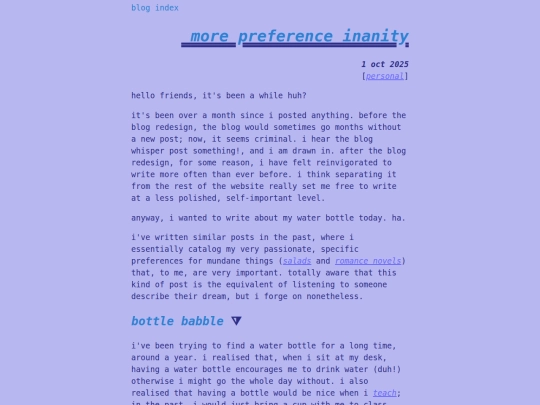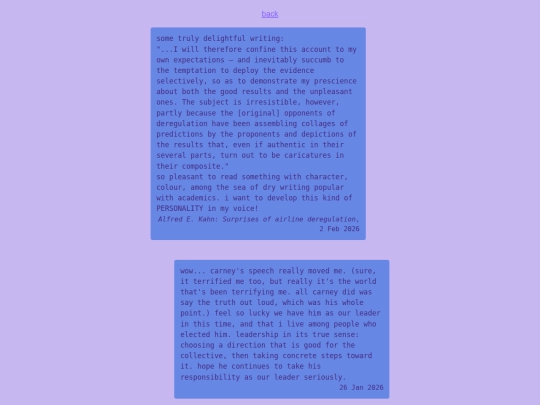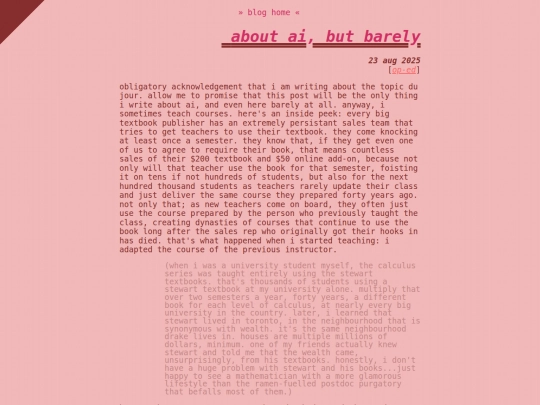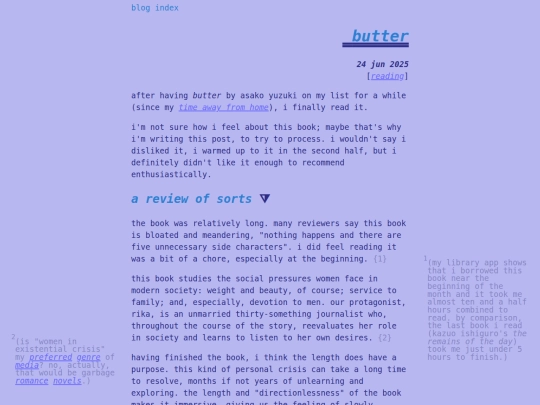 limovars
6 months ago
limovars
6 months ago
Sonder: "the feeling one has on realizing that every other individual one sees has a life as full and real as one’s own, in which they are the central character and others, including oneself, have secondary or insignificant roles"
 oopsiedoodle
6 months ago
oopsiedoodle
6 months ago
So relate to being bad at houseplants. Even when they die and get crispy, their crispiness just becomes a part of the decor for months until I realize that I'm living in a dead plant graveyard. My brain just doesn't notice them, and expects them to be self sufficient. I do love having plants, though.
 sorbier
6 months ago
sorbier
6 months ago
@limovars -- sometimes i feel overwhelmed with that feeling when i look at the street from a condo... each of those car lights standing for one full life... so many of them flowing through endlessly...
 oopsiedoodle
7 months ago
oopsiedoodle
7 months ago
i like it. i'm a professional editor and it would never fly for my purposes (kids books). but the meaning is clear and it has good flavor despite being gramatically incorrect.
 sorbier
7 months ago
sorbier
7 months ago
@oopsiedoodle interesting! i will think about the flavour of the sentence... i agree the will adds some emphasis
 sorbier
7 months ago
sorbier
7 months ago
@ghostscape yes the will is crazy, personally i would just delete it: "and i may never"
 sorbier
7 months ago
sorbier
7 months ago
@owlroost i had a whole late-night delirium conversation during college (you know the type) about that horse raced by the barn sentence... i didn't know it was called a garden path sentence! it's almost the sentence equivalent of a shaggy dog story








































































































There are two types of people: those that put zero thought into whatever drinking vessel chances into their life, and those who are incapable of feeling the warm, comforting surrender of contentment (I assume that's what it feels like)
Congratulations on the house! And on finding a suitable water bottle.
congrats on the house! i know you say you don't like double walled bottles but out of all the bottles i've had (and ive had a lot) i've enjoyed Hydroflasks a lot because they can keep my water at a cool temp in 100+ F weather
I also bought a house earlier this year and have only recently stopped obsessively checking my mortgage account all the time for no reason, as if the more I check the faster it's going to go away.